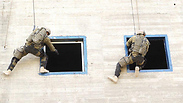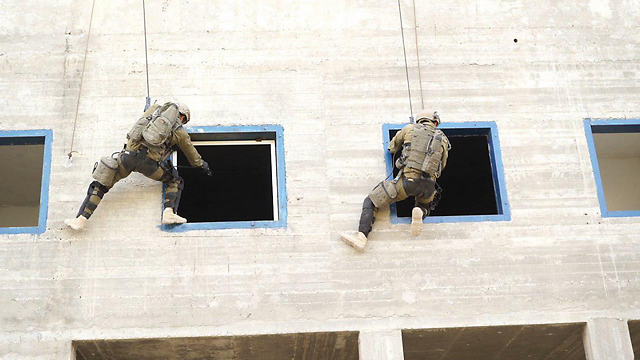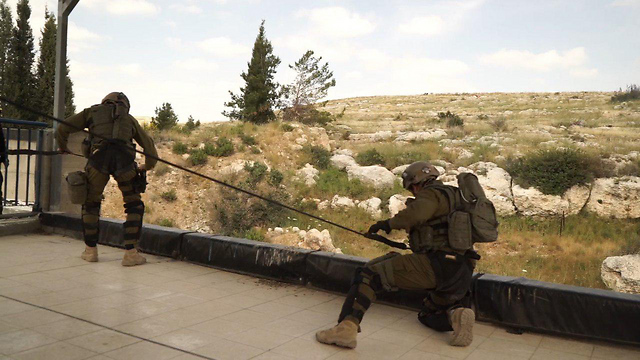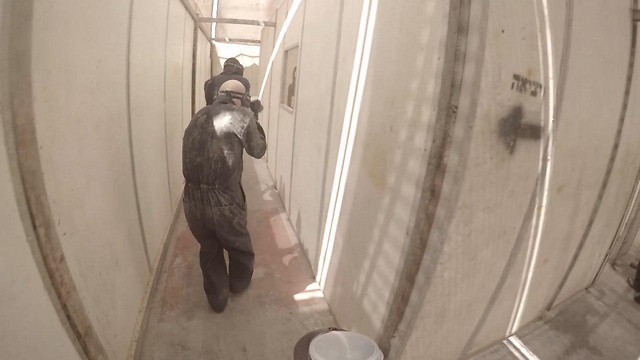
The "Eilat" anti-terrorism unit held a regular training exercise in the southern city this week, simulating the extraction of hostages under hostile conditions from the hands of terrorists.
The eponymous unit operates in Israel's resort city, where tens of thousands of Israelis will be spending the Tishrei holidays this year, as they do every year.
The country's southernmost city is less pleasing for security forces, however, as it always poses a special challenge when preparing for scenarios entailing hostile forces breaching it.
Only a few dozen meters separate hotel rooms located in Eilat's southern beaches and the Sinai border, where ISIS-affiliated groups still abound and pose a threat not just to Egyptian troops, but potentially to tourists in Israel as well.
These are precisely the circumstances to be dealt with by the "Eilat" anti-terrorism unit, quite different compared to any of the IDF's other special intervention forces.
The unit's personnel is made up entirely of reserve soldiers who live in Eilat, able to transform in an instant from teachers, practical engineers, hotel employees and taxi drivers to members of an elite unit called upon to take out terrorist or extract hostages.
The unit has spent the last week preparing for such an emergency scenario, with a local school used as training ground.
"We're on alert 24/7, every single day of the year. We can be rousted when we're with the kids or on the way to the grocery store. We go from 0 to 100 in a very short time. It's a demanding commitment, and to stay on edge we hold these training exercises once every few weeks, using different scenarios, to maintain peak physical condition and fighting capabilities," explained the unit's deputy commander Lt.-Col. (res.) A.
Most of the unit's members served as infantrymen during their regular service, usually in commando units, and underwent a special five-week training course when they were accepted into the "Eilat" unit at 22 years of age. In total, the length of time needed to become a certified member of the unit is a year.
The squad's average age is 28-30, but some members are older. In fact, the oldest member—a 77-year-old—retired only recently.
The anti-terrorism unit's weeklong training exercise saw members rappel down the side of a building and simultaneously ascend it using ladders and ropes to safely extricate "hostages."
"We only have one goal: to defend our home, the city of Eilat. This job requires precision, speed, quiet and professionalism," said Lt.-Col. A.
"Our enemies also keep abreast of all the latest developments, which is why when we hold drills the exact scenario is less important than improving our creativity. It doesn't matter how many new technologies we'll introduce to the unit, because the other side is doing the exact same thing. Tons of information is available online now, 'dummies' used to put together armaments are freely available on eBay and the bad guys can easily access all of it. The other side is in no way inferior to us and whoever thinks they are is doing us a disservice," he concluded.
The unit remained inoperational for most of its existence, but under certain extraordinary circumstances—such as the 2011 terrorist attack on highway 12—its men were called into action and proved their expertise.



















